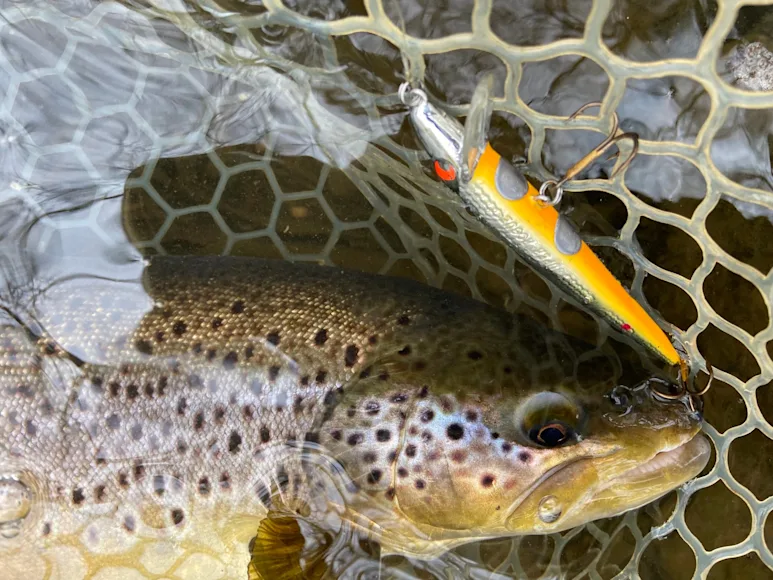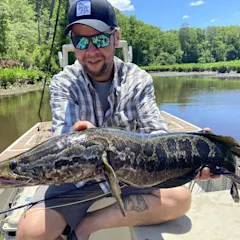_We may earn revenue from the products available on this page and participate in affiliate programs. Learn more ›
_
On paper, explaining how a suspending jerkbait works couldn’t be easier. On the water, getting one to truly suspend is no easy task. All that “suspending” on the packaging of jerkbaits
means is that the lure becomes neutrally buoyant: After it reaches the maximum depth that its diving lip will take it, the lure will not sink any deeper and it will rise back to the surface painfully slow or not at all. It will essentially hover in place, motionless unless you snap the rod tip to bring it back to life. So, why is this important? Because a lure that can hover in place stays in the strike zone longer and allows you to impart enticing action without requiring speed or to be advanced far forward.
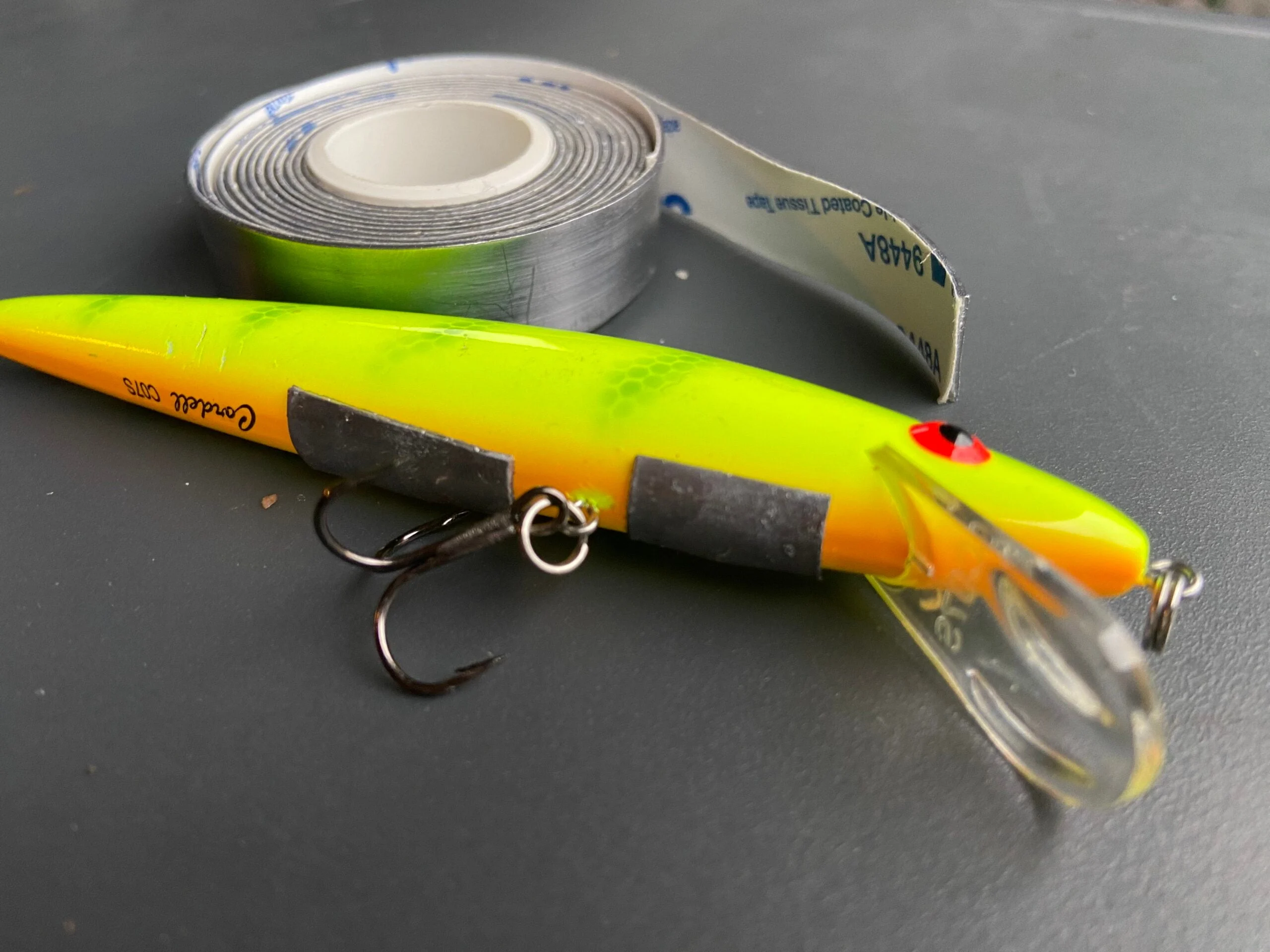
Applying lead tape to a jerkbait is a simple lure hack to get the bait deeper. Joe Cermele
Whereas even the best crankbait
needs to be steadily reeled to make it wobble and dart, a suspending jerkbait can be finessed, which is why these lures are so valuable in late winter and early spring. When the water is still cold and fish are less aggressive, a suspending jerkbait can make the play with sluggish predators faster than other lures. The easiest way to harness their power is to pony up the coin for the best suspending jerkbaits on the market. But they’re not cheap. Or, for a few bucks—and with a little experimentation—you can turn jerkbaits you already have laying around into hovering killers.
The Best Suspending Jerkbaits (and the Best for the Money)
There’s no shortage of suspending jerkbaits available in tackle shops. The thing is, just because the company claims it suspends doesn’t mean it will, or at least not as much as you want. There is, unfortunately, no mandatory standard to claim your lure is a suspender. Some might hover for a second or two; some might rise faster than advertised. I’ve bought plenty of “suspending” jerkbaits that bobbed back to the surface like a cork. The Vision ONETEN by Megabass
is arguably the best suspender out of the box on the market. Achieving this, of course, required serious engineering that culminated in an internal weight transfer system that is constantly adjusting to help the bait stay down. For this technology, you’re paying $25 a lure, and I can tell you from experience that it hurts at the register and kills when you lose a ONETEN to a submerged stump.
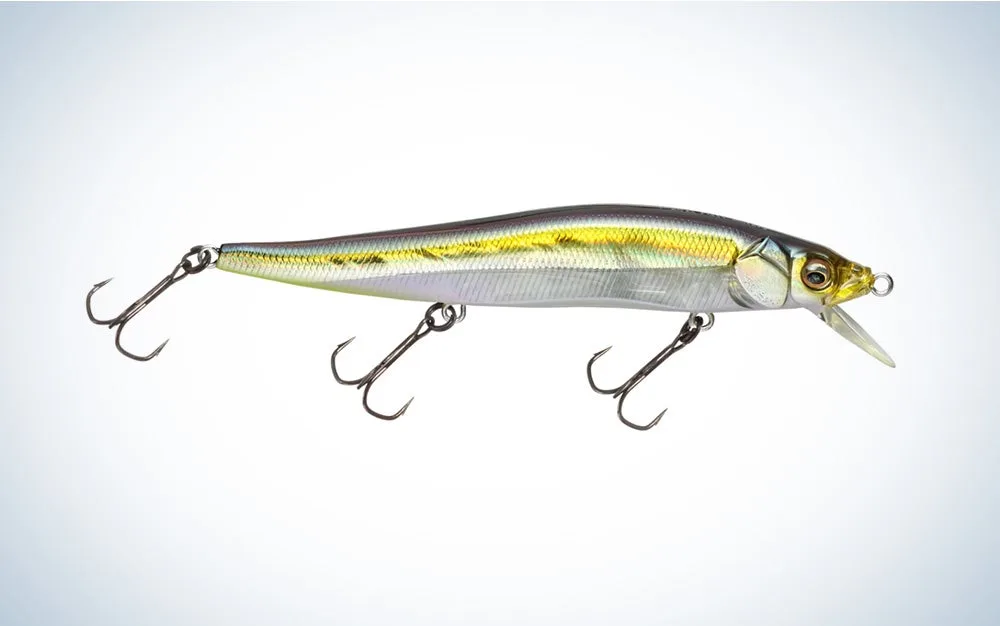
My go-to suspending jerkbait has been the Smithwick Rattlin’ Rogue
for years, although the Rapala X-Rap
are close seconds. These baits will run you between $8 and $11, which is far more reasonable, and while their actions are great and they get down fast, all their suspension abilities could be a bit better.

The simple solution is a product that has been on the market for decades yet many anglers overlook—Storm Suspendots
. These small, round, removable lead stickers were designed specifically for altering the buoyancy of hard lures like jerkbaits. By sticking them along the belly of the bait, thus making it bottom heavy, you’re changing their rate of rise. This can also be done with a role of high-density lead golfer’s tape
that’ll set you back $20 for 60 inches. Considering you’ll want to cut it down into small strips, that roll will last for years or get hundreds of baits suspending. Just keep in mind there’s some strategy involved in where you stick that lead.
How to Balance a Jerkbait with Added Weight
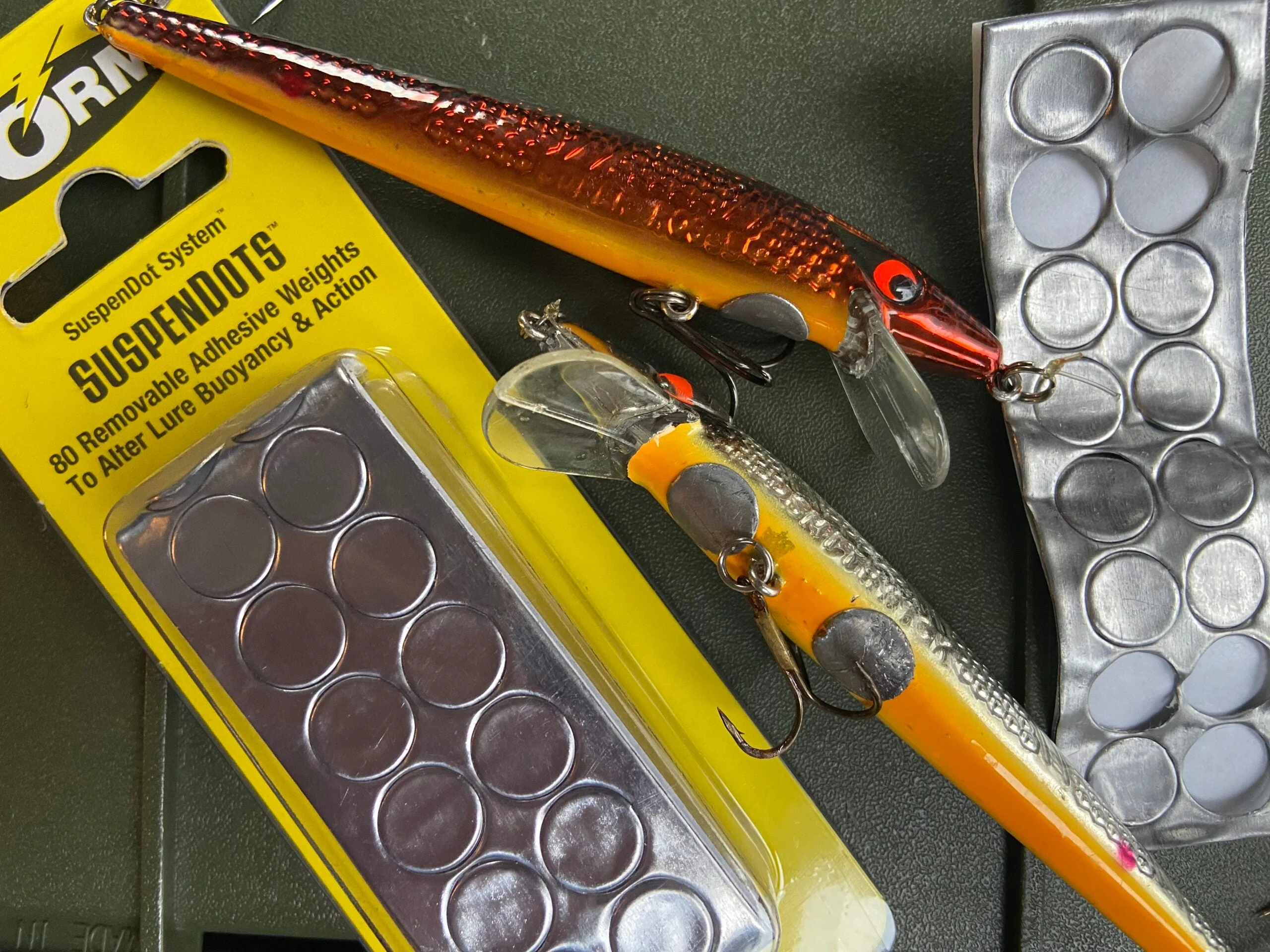
Storm Suspend Dots are another DIY option to add weight to jerkbaits. Joe Cermele
Suspension is achieved not only by altering weight, but also by creating balance. Balance is also critical because if it’s thrown out of whack, the lure will no longer run true. Years ago, I had the bright idea of altering a suspending jerkbait’s suspension by drilling a hole in the belly and filling up the body cavity with BBs. In the water they all rolled forward and made the lure drop to the bottom nose down like a torpedo. It had zero action. Though there are methods of loading hollow plugs with water or mineral oil to alter buoyancy and casting distance, the practice is usually reserved for larger lures used in surf fishing
. For smaller freshwater baits, stick-on lead is the way to go, because you can always remove it if you get it wrong.
How many dots or strips of lead tape you need to create your desired level of suspension will certainly vary by bait, so ideally, you’ll build in some testing time before pounding the water all day to ensure that you’re lead placement is creating the desired effect on your lures. As an example, I know that a single dot or strip under the chin of a Smithwick Rogue Jr.
keeps the lure hovering in place in medium current and depths up to 3 feet. Conversely, if I add a second dot to the belly behind the front treble, the lure will continue to sink very slowly on the pause. Experimentation is the only way to figure this out, but once you have a formula for each lure dialed in, you can swap lures or add weight by location. Whenever I encounter a slower run that’s 5 feet or deeper, I go for the jerkbait sporting double dots.
Even floating jerkbaits can benefit from a pinch of lead. The Rapala Original Floating Minnow
, as an example, relies on the buoyancy of its balsa wood body for its trademark roll and wobble. You’d never be able to add enough stick-on lead to make this lure truly suspend and still perform, though you can alter its rate of rise, as well as its action on the retrieve and as it floats back to the surface. Suspension is all about subtlety and making small adjustments that can trigger fish in a big way, the price of lead dots and strips are well worth it, because with the right formula, a lure that you were lukewarm too, or that just never seemed to produce, can suddenly become a secret weapon.

